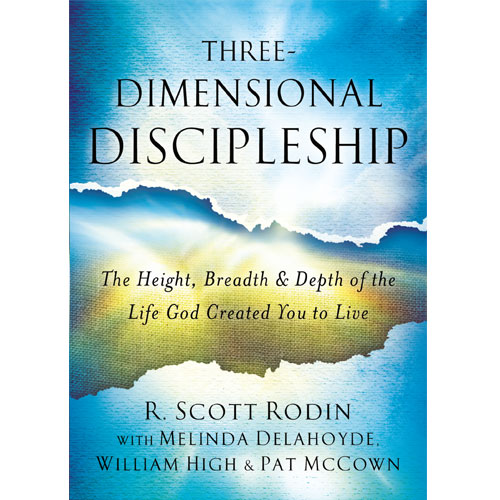What Does God Really Want from Us?

Recently I’ve been doing a series of interviews and podcasts based on my new book, Set Free to Lead. Invariably somewhere in the interview I will be asked my opinion on why we are seeing so many failures among prominent Christian leaders. Of course, the ‘failures’ they reference go beyond just leaders and include the weaknesses and flaws that all of us experience but never (thankfully) make the headlines.
Behind this question lies a more prickly set of issues. Why are so many committed followers of Jesus feeling discouraged? Why are so many seemingly pious believers choosing not to return to the local church? Why is a generation of young people walking away from the church in which they were raised? Why has the church seemed to lose its voice in our culture? Why are we playing defense in the cultural chaos of our day? And why does the gospel message seem to have become despised by some and irrelevant to so many others?
Let me ask you, how many times in the last few months have you heard yourself say, “What is happening to our country?”
While it may seem foolhardy to assume there is one overarching solution to these questions, one thing I am learning about our faith as I get older is that the answers we seek are often much simpler than we imagine.
So let me offer one possible answer to these complex issues. It was triggered in me from my reading of two books; my daily devotions from Oswald Chambers, My Utmost for His Highest, and Carl Trueman’s new book, The Rise and Triumph of the Modern Self.
In the former, Chambers provides a definition of our sinful human nature as “my claim to my right to my life.” I find this a provocative yet salient way to think of our nature that, while redeemed, still bears the stain of the fall. It’s not just that we are continually tempted to live as the lord of our life, but our very sinful nature lays claim to such lordship as our right.
Does this sound familiar? We hear it in how the ideologies of self-sovereignty are covered in the news. We read about it in the latest comments from the shapers of our cultural values. We are confronted with it through the passion of those for whom this claim drives the re-formation of our social mores from business to politics and into the church. By claiming our right to our life, we not only reject every other claim – including God’s – but we set ourselves up as the sole arbiters of what is right, acceptable, honorable, true and moral.
This self-lordship has no limits. It started in Eden when the first humans bit on the offer to ‘be like God’ (Genesis 3:5). It has been the scarlet thread running throughout the history of man’s inhumanity to man. Given this history, it would be tempting to downplay this concern because this is how it has usually been for us.
These, however, are not usual times. This nature of sin is having its day like we have never seen in our lifetime, and we ignore it at our peril. Carl Trueman frames the issue for us.
“The intuitive moral structure of our modern social imaginary prioritizes victimhood, sees selfhood in psychological terms, regards traditional sexual codes as oppressive and life denying, and places a premium on the individual’s right to define his or her own existence. All these things play into legitimizing and strengthening those groups that can define themselves in such terms. They capture, one might say, the spirit of the age” (bolding is mine).
Trueman’s book offers a fascinating thesis on how we got here. It’s worth the long and deeply philosophical read.
My conclusion is that at the core of all we are experiencing today is the triumph of self-lordship. We have systematically discarded the ‘shackles’ of the Judeo-Christina ethic that has historically formed the moral fiber of our social structures and replaced it with the secular humanist ideal – freedom for self-rule without restraint.
In that freedom, we are driving out any place for a God who would have the audacity to lay claim to our lives and ask for our obedience in return. Can we imagine any more offensive and despised a message than Jesus saying to this culture, “whoever wants to save their life will lose it, but whoever loses their life for me will find it”? Matthew 16:25
The gospel that brings freedom, hope, grace, and truth is anathema to a culture hell bent on self-lordship because the first step in responding to the gospel message is repentance and surrender. It seems counterintuitive, even bizarre to hear Mark say, “Jesus went into Galilee, proclaiming the good news of God. “The time has come,” he said. “The kingdom of God has come near. Repent and believe the good news!” (Mark 1:14-15)Today it seems impossible to connect ‘good news’ with ’repentance’. The two are mutually exclusive to a culture of self-lordship.
So, how will we take this message of God’s abundant life through surrender to Christ to a generation feverishly grasping at every chance to ‘save their life’? How do we preach grace to a people who reject every notion of personal sin? How do we proclaim the joy that, “when the Son sets you free you will be free indeed” when our faith is being labeled as ‘oppressive and life denying’? How do we speak the truth that, “You are not your own; you were bought at a price” to a culture that places a premium on the individual’s right to define his or her own existence?
A recent article on leadership failures in the church in The Christian Post says succinctly, “The onus is on the Church to ‘redefine success’” Let me conclude with what that might look like and why it may be the right response in these challenging times.
In John’s gospel the disciples ask the very question we are asking here. Faced by outside pressure to define who Jesus is and by internal confusion over his purpose and their role in it, they ask him with a sense of exasperation, “What must we do to do the works God requires?”
Isn’t that our question? Don’t we struggle for the answer to this one, simple yet seemingly so evasive question? In our time of the increasing rule of self-lordship, in this moment of cultural chaos, in this day of moral confusion and societal decay, what is the work God requires of us?
Jesus’ answer is shockingly simple, “Jesus answered, ‘The work of God is this: to believe in the one he has sent.’”
And…? And nothing. That’s the point. In another devotion Chambers writes, “The greatest need we have is not to do things but to believe things.” If that seems too simplistic, it’s because we have bought the lie that we, too, must define our own identity in what we do, even if it’s ‘all for Jesus.’ Somehow, we just can’t believe that all God asks of us is faithfulness. If that’s all, it removes from us the illusion that we have the power to control our lives. It requires surrender of our best ideas that God may lay full claim on our lives, including the outcomes of all our good works.
Following Jesus means losing the life we would so like to save where we can proclaim Jesus as Lord of our spiritual stuff while remaining the lord of everything else, including our identity. And that brings us back to leadership failures.
Perhaps so many leaders are failing because the cultural penchant for self-lordship is just too alluring. We can so easily comingle gospel truth with worldly values. In doingso, we strip the gospel of its power and yield to the soul-destroying drive to succeed based on the promotion of a counterfeit identity.
Imagine instead the body of Christ living for one purpose – faithfulness. Imagine a national commitment to be stewards of life, acknowledging that everything belongs to God and embracing the joy of stewarding it for His glory. Imagine if every self-proclaimed follower of Jesus held this one driving vision for their life; to act justly, to love mercy and to walk humbly with our God? (Micah 6:8)
What does God require of us in this day? Only that we believe, because true belief always works in us repentance and surrender, and invites us into the life of a faithful steward.





